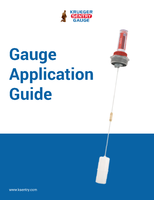SAE Honored SwRI Engineers with 2017 John Johnson Award
Share:
Press Release Summary:
The Society of Automotive Engineers presented two Southwest Research Institute engineers Chris Sharp and Dr. Cary Henry with 2017 John Johnson Award for Outstanding Research in Diesel Engines during SAE 2018 World Congress. The articles focused on heavy-duty diesel engine which studies about traditional and advanced technologies for achieving ultra-low NOx emissions. Their research is based on different exhaust aftertreatment technologies and the article was published in the March 28, 2017.
Original Press Release:
SwRI Engineers Receive SAE John Johnson Award for Technical Paper
Research addressed to reach ultra-low NOx emissions in heavy-duty diesel engine
SAN ANTONIO, April 10, 2018 /PRNewswire/ -- The Society of Automotive Engineers (SAE) honored two Southwest Research Institute engineers today with the 2017 John Johnson Award for Outstanding Research in Diesel Engines. Their journal article details work on a heavy-duty diesel engine that explores traditional and advanced technologies to achieving ultra-low NOx emissions.
Chris Sharp and Dr. Cary Henry, both in SwRI's Powertrain Engineering Division, are two of five coauthors of the paper, "Achieving Ultra Low NOx Emissions Levels with a 2017 Heavy-Duty On-Highway TC Diesel Engine – Comparison of Advanced Technology Approaches." They received the award during the SAE 2018 World Congress (WCX18) in Detroit.
"Southwest Research Institute has been working in catalyst and aftertreatment system research for many years and has a long history of performing these kinds of forward-looking technology demonstrations for government and industry clients," Sharp said. "In this project, we analyzed and evaluated a variety of catalysts and advanced emission control technologies to help reduce NOxemissions from heavy-duty diesel engines. It's an honor to be recognized with such a prestigious industry award."
The research explored various configurations of traditional exhaust aftertreatment technologies — diesel oxidation catalyst, diesel particulate filter and selective catalytic reduction (SCR) — and advanced technologies — passive NOx adsorber, SCR on filter and SCR — to demonstrate ultra-low NOx emissions. The team also evaluated active and passive performance modifiers, including heated diesel exhaust fluid dosing, gaseous NH3 dosing, and supplemental heat addition devices. Researchers evaluated the feasibility of reducing tailpipe NOx emissions by 90 percent relative to the 0.20 g/hp-hr 2010 emissions standard. They found that achieving emission levels of 0.02 g/hp-hr for heavy-duty engines would require a significant shift in technology application. The biggest hurdle is cold-start NOx emissions. The team used SwRI's ECTO-Lab™, a full-flow, transient gas reactor bench for testing full-sized catalyst systems, to perform the technology screening studies.
The journal article was published in the March 28, 2017, issue of SAE International Engines and presented at the 2017 SAE World Congress. The John Johnson Award recognizes outstanding research papers on "advancements in diesel engines regarding efficiency and low emissions achieved by innovative experimental and modeling research of the engine, fuel and/or aftertreatment systems."
For more information, visit ecto-lab.swri.org.
About SwRI:
SwRI is an independent, nonprofit, applied research and development organization based in San Antonio, Texas, with nearly 2,600 employees and an annual research volume of more than $528 million. Southwest Research Institute and SwRI are registered marks in the U.S. Patent and Trademark Office. For more information, please visit newsroom.swri.org or www.swri.org.
Contact: Rob Leibold • (210) 522-2258 or rleibold@swri.org




